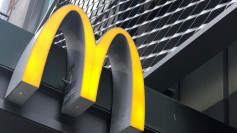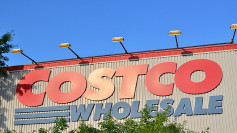McDonald's is facing increased scrutiny as the Food and Drug Administration (FDA) investigates a possible link between a supplier and a multistate E. coli outbreak connected to its popular Quarter Pounder hamburgers. The outbreak, which has already resulted in nearly 50 confirmed cases of E. coli and one death, is raising concerns across the fast-food industry, with other chains taking precautionary measures.
The FDA has identified Taylor Farms, a prominent supplier for McDonald's, as the possible source of the contamination. Taylor Farms, a California-based company known for its fresh-cut fruits and vegetables, recalled four raw onion products out of "an abundance of caution" after being implicated in the outbreak. The contaminated onions are suspected to be the primary cause of the E. coli infections, according to both the FDA and the Centers for Disease Control and Prevention (CDC).
In response to the growing crisis, McDonald's has taken swift action, pulling Quarter Pounders from its menus in multiple states, including Colorado, Kansas, Utah, and Wyoming, as well as several others across the Midwest and West. The company confirmed that the slivered onions used in the burgers were sourced from a single supplier and processed at a single facility. However, it has not yet been made clear whether other McDonald's locations or menu items are affected.
Taylor Farms' recall has sent shockwaves through the restaurant industry. Yum! Brands, which owns Taco Bell, KFC, and Pizza Hut, has removed fresh onions from select locations as a precautionary measure. Illegal Pete's, a Denver-based chain, has also temporarily stopped using onions in its food items. While no E. coli cases have been directly linked to these chains, the precautionary measures reflect growing concern over potential contamination.
The strain of E. coli involved in the outbreak, O157
, is particularly dangerous. It produces a potent toxin that can cause severe gastrointestinal illness and, in extreme cases, lead to life-threatening conditions such as hemolytic uremic syndrome, which can result in kidney failure. Among those affected, 10 people have been hospitalized, including one child suffering from this serious complication. The CDC warns that the number of cases is likely to rise as the investigation continues.
This is not the first time a fast-food giant has been hit by an E. coli outbreak, but McDonald's has moved quickly to contain the potential damage. "We are taking every possible precaution to ensure the safety of our customers and have removed all affected products from our restaurants," a McDonald's spokesperson said. "We are working closely with the FDA and other authorities to identify the source of the contamination."
Lawsuits have already started to emerge as a result of the outbreak. Ron Simon & Associates, a food safety law firm, has filed two lawsuits against McDonald's, one on behalf of a Nebraska resident, Clarissa DeBock, and another for Colorado resident Eric Stelly. Both plaintiffs reported falling ill after eating Quarter Pounders and were later diagnosed with E. coli O157:H7. Simon said his firm now represents 15 families affected by the outbreak, with clients ranging in age from 20 to 60 years old.
Simon, who has handled numerous foodborne illness cases, said the impact of the outbreak is widespread. "They're in different states and different communities with different outcomes," Simon said, adding that more lawsuits are likely to follow as additional cases are confirmed.
The fallout from the outbreak is not limited to McDonald's. As concerns spread, Burger King has also taken onions off the menu at select locations, particularly in Colorado, where the outbreak has been concentrated. "We've been told by corporate to not use any onions going forward for the foreseeable future," said Maria Gonzales, an on-duty manager at a Burger King location in Longmont, Colorado. This reaction underscores the far-reaching effects of the outbreak on the broader fast-food industry.
Despite these developments, many customers remain undeterred. In Longmont, Colorado, where several cases have been reported, Charity Atkinson, a McDonald's customer, said she wasn't too worried about the outbreak. "I'm hoping everything gets taken care of really soon because my mom loves the Quarter Pounders with cheese," she said. Others, like Monica Martinez, have decided to switch restaurants, citing concerns about food safety.
McDonald's now faces the challenge of reassuring its customer base while addressing the growing number of E. coli cases. The outbreak recalls similar crises faced by other fast-food giants like Chipotle in 2015 and Jack in the Box in 1993, both of which saw sharp declines in sales for several quarters following E. coli outbreaks.






